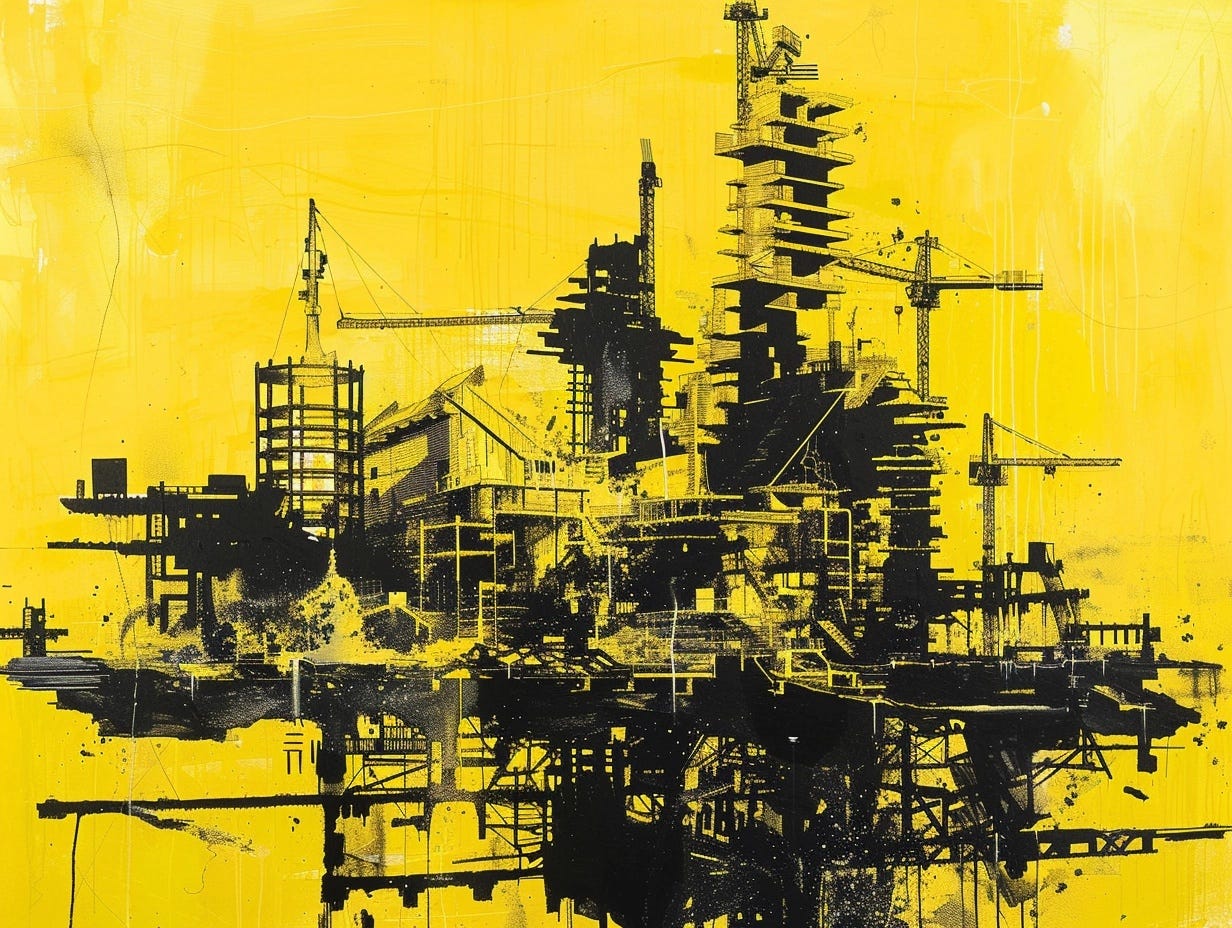Building Out Loud #7: Inside the minds of deep tech founders
5 atomic essays on deep tech venture building
The eye of the tiger
I've learned to recognise the 'Eye of the Tiger' in a founder. I've seen it many times in my work building companies.
When founders start companies, anything is possible. There is an intoxicating sense of opportunity, an optimism for a better world that this company can deliver. At this stage in a company's life, seeing the 'Eye of the Tiger' is rare. Instead, we see curiosity and openness. The founder is hungry to learn and observe how the market responds to their ideas.
Over time, burdens accumulate. The founder builds a team and raises money from investors, both of whom they make promises to. They show them a world that they alone understood at one point and convince them to make a bet on their ability to bring it to life.
They make early versions of the product and show them to customers. Most likely, they are a bit scrappy initially, but they mobilize the whole company to deliver the best possible experience. And the first customer loves it.
But then, unless the founder is very lucky...
Something breaks...
Or a co-founder quits...
Or the technology doesn't work as predicted...
Or, most commonly, the value promised when the money was first raised has not eventuated as hoped, and the end of the runway looms closer, while new capital is not receptive to funding a new round.
When all hope seems lost, feeling the weight of what they have promised on their shoulders, they get to work instead of giving up. These struggles can take months - or years - to resolve.
But when the founder comes through, you can see it.
The 'Eye of Tiger'. It presents as an un-wavering look—a refusal to the resistance displayed others.
They have tested their own ability to do what it takes to deliver. Now they will not tolerate something in their way. They will barge through or route around. Either way, they are moving forward.
This is the moment when founders are truly born.
Phase transitions are always a mess. Lean into them
When viewed from the outside, it is easy to believe that startups grow smoothly in a single phase, from the founding moment to the billion-dollar exit.
Why, then, do founders find themselves in periods leading companies that feel broken, almost embarrassed to let the outside world see the chaos inside?
I think, because it is quite normal.
Rob Newman helped the Main Sequence portfolio understand this at our annual portfolio day last year by telling us about his journey growing and selling Nearmap for over $1 billion.
As the company grew, it needed to take on new shapes, run different processes, hire different people, launch new products. Each new phase led the company into a messy transition.
The sheer normality of the mess resonated with me. Of course it is messy. Don't resist the mess if there needs to be a phase transition to go to the next level.
As a CEO and sportsman, Rob understood the value of coaching and hired a new coach for himself each time the company took on a new form. When plunging into the chaos of change, it is good to know you are equipped to crawl out the other side.
But, resist the mess and we resist the shift. Lean in and get it done.
The art of synthesis for deep tech founders
In a conversation with a founder last week, we were exploring a new business idea. At the heart of the idea is some complicated bio-technology, a very difficult to navigate supply chain and an expensive capex build. It was also quite boring on the surface and hard to imagine a crowd of investors downstream fighting to get into the next round.
But the founder explained it to me in a way that electrified the concept in my mind. They came at it from a world of geopolitical shifts, a gaping opportunity to effortlessly reflow supply chains and a magical technology that would sustainably deliver industrial advantage to countries.
The founder started with the WHY and led me to the WHAT. See Simon Sinek for more on this.
WHY: painting a picture of a massive market problem that most people understand.
HOW: building a business model around an existing flow of that market and leaning into it instead of trying to force a change. So many companies fail when founders think they can bend a whole planet around their company.
WHAT: a unique invention that no one else has. After the WHY and HOW, I am hungry to understand the WHAT.
The work to get to this simple idea takes a special kind of work - SYNTHESIS. It involves iterating thousands of times over a vast information space that includes world events, government policies, industrial trends, technological invention.
It requires an always-on radar that scans the world looking for micro-moments of hypothetical product market fit and smushing them all together until a single cohesive story emerges that a founder can unite a community around.
Three reasons to work on your deep tech startup messaging early.
"I run a B2B company, so I don't need messaging" or "We don't need to focus on messaging until we've proven more in the lab."
I hear these comments a lot, and here's why they're misguided:
#1 - Messaging clarifies value: Crafting your message forces you to pinpoint what’s truly valuable about your offering. It helps you understand and articulate the unique benefits that resonate with potential customers and investors.
#2 - Messaging is more than media releases: It’s about quality communication with a targeted audience, often just a handful of key people. Clear, consistent messaging can open doors and build credibility early on.
#3 - Messaging and product are a two-way street: Good messaging informs product development and vice versa. It’s a feedback loop that helps refine both your product and your pitch.
Don't wait. Start nailing your messaging today.
The region as a startup
A startup is an organisation formed to search for a repeatable and scalable business model (Steve Blank). I have become very interested in how this applies to a whole region.
In deep tech venture building, a company can't be built in isolation. Rockets can't be launched from a cubicle in a shared office. Bio-manufacturing startups need feedstock. Waste processing startups need regulation. Green chemical businesses need access to renewable energy. I spend a lot of my time working with the leaders of regional Australia, to unlock the environments in which our deep tech companies can prosper.
Like companies, regions are re-inventing themselves as nations re-focus on sovereign capability and as the entire industrial fabric of the earth is being re-built in response to climate change. Like a startup, the regions are searching for their repeatable and scalable business model.
What is this region's unique value proposition?
What resources (people, feedstock, ports, energy, etc) that can unlock that value?
What impact will this have on the economy?
What do we need to invest to make it happen?
What are the key partnerships and relationships that bring this to life?
As deep tech venture builders, we need to participate in these regions and be one of those key partnerships. It is a whole new dimension of effort and cost. But without participating in the region as a startup, our companies will struggle.
The old paradigm to singularly 'point a great founder at a problem and watch them go' just doesn't work in deep tech.







